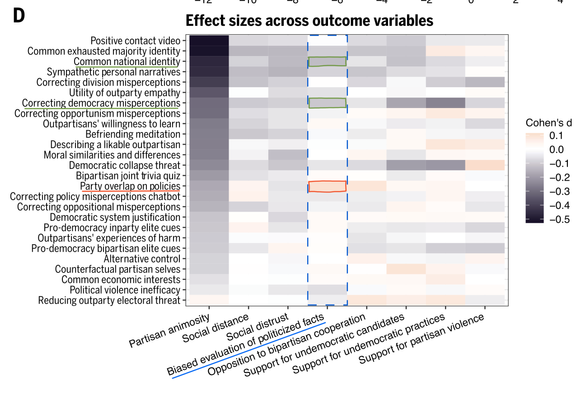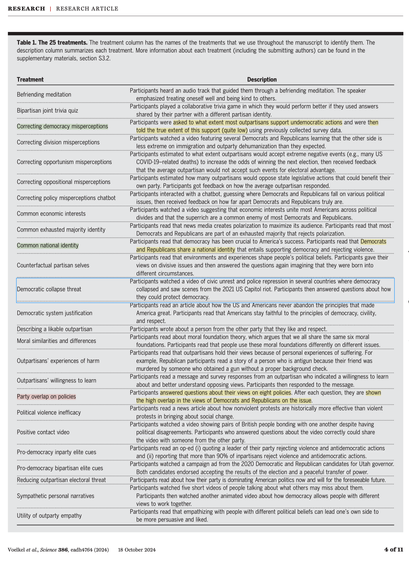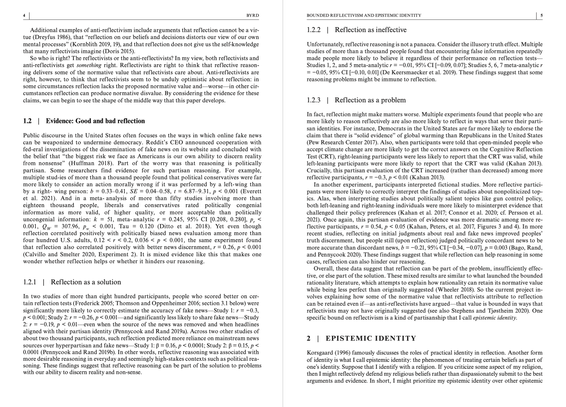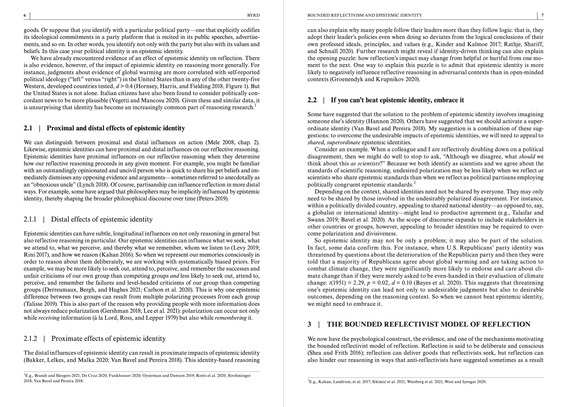More successful predictions of my #BoundedReflectivism & #EpistemicIdentity article from 2022?
From about 2017 or 2018, I reviewed evidence suggesting that reflective thinking often helps, but may even hinder our judgment depending on factors like whether we are reasoning based on shared identities and epistemic standards (https://doi.org/10.1111/meta.12534).
Years later Robb Willer et al. solicited ideas for debiasing political judgments. After years of testing 25 different interventions, their results are published in #Science: https://doi.org/10.1126/science.adh4764
They found that biased evaluations of politicized facts were impacted by both
- REFLECTION (on potential misperceptions of undemocratic actions) and
- shared IDENTITY cues (which could help *or* hinder!)
#decisionScience #politics #psychology #philosophy #epistemology #metaphilosophy #JDM #debiasing #chatBot
![Section 4.2.3 of Byrd 2022 (Metaphilosophy)
"Strategic reliabilism"
"...this paper does not consider all the conditions in which reflection will help or hinder our normative goals. Research can enumerate the ways reflection is used toward normative goals and test its efficacy across contexts. The resulting data could feature in a sort of strategic reliabilist account of reflection’s normative value— strategic reflectivism: reflection should be deployed in contexts where its benefits have been shown to reliably outweigh its costs (à la Bishop and Trout 2004 and 2008; Stich 1990)."
"Strategic reflectivism’s admission that reflection can improve our reasoning is more optimistic than ... anti-reflectivism [and] more pessimistic than... reflectivism.... Hence, a strategic reflectivism based on bounded reflectivism could also provide a middle way between competing views about the normative value of reflection."](https://files.mastodon.social/cache/media_attachments/files/113/900/134/267/823/870/small/d6dd8e78d5b7f47a.png)



